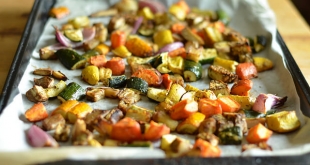BF Basics: Veggie Tales was composed by four-year post-op and 25-year vegetarian, Kelly, better known as Poet Kelly on Obesity Help. This series is written in her voice with the full endorsement of Bariatric Foodie. If you have any questions for Kelly about any of the information provided, please leave them in the comments and she’ll gladly respond.
Basically, you want to look for the same kinds of things on
the nutrition label of vegetarian foods that you’d look for on non-vegetarian
foods. Look at how much protein it has,
how many calories, how much sugar, how many grams of fat and carbs if you count
those things. There are a few things to
keep in mind when reading labels, though.
the nutrition label of vegetarian foods that you’d look for on non-vegetarian
foods. Look at how much protein it has,
how many calories, how much sugar, how many grams of fat and carbs if you count
those things. There are a few things to
keep in mind when reading labels, though.
- Don’t assume “vegetarian”
or “vegan” mean healthy. There is
lots of vegan junk food out there and vegan or not, it’s still junk
food. Vegetarian food products can
be high in sugar, high in fat and full of all kinds of chemicals you
wouldn’t want to put in your body. - Don’t assume the word
“vegetable” means vegetarian. For
instance, canned vegetable soup often contains beef or chicken stock. Once I bought some frozen vegetable
fried rice only to find out it actually contained chicken fat! - Don’t assume prepackaged
foods are vegetarian just because you would not put meat in them if you
made them yourself. A friend of
mine once found a packaged cake mix that contained beef fat! I’ve never seen a cake recipe that calls
for beef fat, but they put all kinds of wacky stuff in packaged foods. - Don’t assume fake meat
products, like veggie burgers, have as much protein as real meat. Some brands will have more protein than
others. Read the label.
Animal Ingredients to Watch Out For
It would be easier to avoid animal products if companies always labeled things clearly, but they don’t.
For instance, the label on a package of cheese will not list “calf
stomach” as an ingredient but it might list rennet, which just happens to be
another word for part of the stomach of a calf.
Here are some ingredients to watch out for if you want to avoid animal
products:
For instance, the label on a package of cheese will not list “calf
stomach” as an ingredient but it might list rennet, which just happens to be
another word for part of the stomach of a calf.
Here are some ingredients to watch out for if you want to avoid animal
products:
- Albumen – usually
comes from egg whites. - Carmine, carminic
acid, cochineal – red dye made from crushed beetles. - Casein, caseinate,
sodium caseinate – milk protein.
Often found in soy cheese (which means they aren’t vegan). - Gelatin – yes,
like in Jello. Made from boiling the
skin and hooves of horses, cows and pigs. - Glycerides,
monoglycerides – animal fat. - Lactic acid –
found in blood and muscle tissue. Use in
fermented foods like beer and sauerkraut. - Lard – fat from
pigs or cows. - Natural coloring
– can mean anything, including animal ingredients. - Natural flavor –
can mean anything, including animal ingredients. - Pepsin –from the
stomach of pigs, used in some cheeses. - Rennet, rennin –
from the stomach of calves, used in some cheeses. - Stearic acid –
animal fat, sometimes used in chewing gum. - Vitamin D – when
foods are fortified with vitamin D, the way milk often is, the vitamin D
usually comes from animals, often from fish liver oil. - Whey – a milk
product.
In summary, what you
need to remember is:
need to remember is:
- Don’t make
assumptions. Read labels, including
the list of ingredients. - Animal ingredients go by
many names and can be found in foods you might not expect to find them
in. If you want to make sure
something is vegetarian or vegan, read the ingredients.
 Bariatric Foodie Play with your food
Bariatric Foodie Play with your food




OMGosh! Thanks for the information! That's spooky. I'm going to have to start reading ingredients beyond the first 3 lines now.
I truly like to reading your post. Thank you so much for taking the time to share such a nice information.
Liquid Rennet